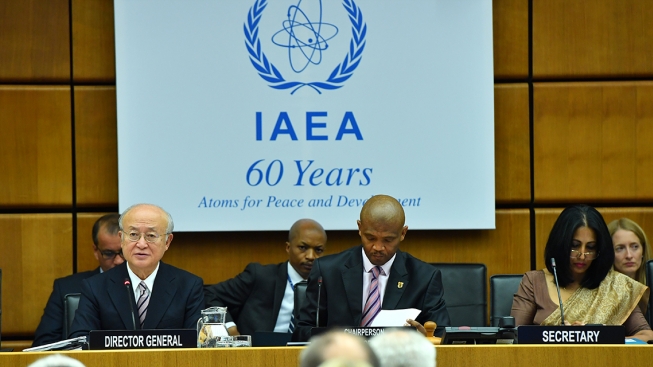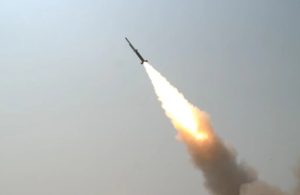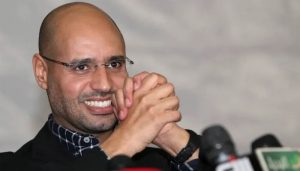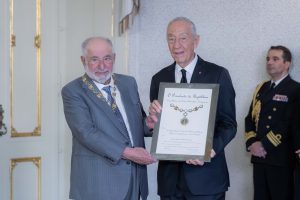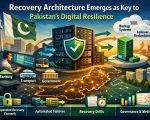VIENNA – IAEA Director General Yukiya Amano delivered his introductory statement to the Board of Governors in his detailed address on Monday.
The official highlighted different roles played by the agency to promote the safe and effective use of nuclear energy.
Amano began by expressing deepest sympathy for the victims of the hurricanes in the United States and the Caribbean, and of the earthquake in Mexico.
His speech, topic wise is as follows:
Technical Cooperation
Mr Chairman,
The IAEA technical cooperation program is our main delivery mechanism for making nuclear applications available to help countries meet their national development goals.
Food security is an important concern for large areas of the globe. In the Dominican Republic, the Agency worked with partner organizations to deploy the sterile insect technique against an outbreak of the Mediterranean fruit fly pest that began two years ago, causing considerable damage to agriculture. Important trading partners imposed a ban on imports of products including avocado, citrus fruits and papaya which cost the Dominican Republic an estimated 42 million dollars in 2015 alone, putting thousands of jobs at risk. Thanks to the eradication efforts, the Dominican Republic declared in July that it is now free of the insect and resumed fruit exports. This is an excellent example of how nuclear techniques deliver very tangible benefits.
Effective management of water resources, both for human consumption and for use in areas such as agriculture and industry, is crucial. The IAEA has provided equipment to 13 countries in the Sahel region of Africa and trained local scientists to use isotopic techniques to assess groundwater in five shared aquifers and basins. This has made possible the first broad overview of the region’s groundwater supplies. Scientists from each country have now published their findings and made recommendations for governments to draw up plans to save water and protect it from pollution. The countries concerned previously depended on external consultants to collect and analyze water data. Thanks to IAEA assistance, each participating country is now able to take charge of its own activities.
Demand for assistance through the TC program is increasing as membership of the Agency grows. I encourage all countries to contribute to the TC Fund. I also welcome support through extrabudgetary contributions, including government cost sharing and the IAEA Peaceful Uses Initiative, which has provided important complementary funding for TC activities.
Nuclear Applications
Mr Chairman,
The ReNuAL project to modernize the nuclear applications laboratories at Seibersdorf continues to make steady progress. The new Insect Pest Control Laboratory will be inaugurated on September 25th. This is a very important milestone. I hope you will all join me for a celebration in Seibersdorf on that date.
Preliminary work is underway on construction of the linear accelerator facility for the Dosimetry Laboratory. We have agreed with an equipment manufacturer, Varian Medical Systems, that it will provide the linear accelerator at no cost for use in our human health program for 10 years. This equipment is worth around 2.8 million euros and the loan represents our largest partnership with the private sector to date. Acquisition of the linear accelerator will significantly enhance the assistance we provide to the Member States in delivering safe and effective radiotherapy treatment for cancer.
In June, we achieved the funding target of two million euros to achieve maximum efficiency in the construction of the third floor of the Flexible Modular Laboratory. I thank all Member States that contributed. A further 4.7 million euros are urgently required by the end of September to keep construction on schedule. I strongly encourage all Member States in a position to do so to provide funding so that we can avoid delay and additional costs.
As we continue to develop the Seibersdorf complex, we are looking at the long-term sustainability of the site and developing a Master Plan for integrated site management.
Parallel to our work in upgrading our own laboratories, we continue to help the Member States to improve their national laboratory capacity. An excellent example is our veterinary diagnostic laboratory network, VETLAB, which has grown to include 44 African and 19 Asian countries. The network has strengthened national capacities for early and rapid detection of transboundary animal and zoonotic diseases. Last month, we brought together around 160 experts from 40 African countries to share experiences on monitoring and containing highly contagious viruses, such as avian influenza and Ebola.
I encourage all of you to participate in the 2017 Scientific Forum, which focuses on Nuclear Techniques in Human Health. It starts next Tuesday.
Nuclear Energy
Mr Chairman,
Turning now to nuclear energy, there are 448 nuclear power reactors in operation in 30 countries today. Fifty-seven reactors are under construction.
My report on International Status and Prospects for Nuclear Power 2017 shows that many countries expect nuclear power to play an increasingly important role in improving energy security and mitigating climate change. At present, 28 countries are considering, planning or starting nuclear power programs, with assistance from the Agency.
Our Ministerial Conference on Nuclear Power in the 21st Century, starting on October 30th in Abu Dhabi, will address many important issues relevant for the future of nuclear power, including climate change. Without nuclear power, it will be very difficult to achieve the Paris Agreement goal of keeping the rise in global temperatures this century well below two degrees Celsius above pre-industrial levels. In order to respond to the challenge of climate change here and now, more attention should be paid to extending the operating lifetime of current nuclear power reactors. Most of these are more than 30 years old, but their operating lifespans could be significantly extended, provided they fulfill the requirements for safe operation. This will be the subject of our 4th International Conference on Nuclear Power Plant Life Management in October.
The Agency will participate in the UN Climate Change Conference, known as COP 23, in Bonn, Germany in November. Two forthcoming IAEA publications – Nuclear Power for Sustainable Development and Nuclear Power and Market Mechanisms under the Paris Agreement – will highlight the advantages of nuclear power as a low-carbon energy source.
Mr Chairman,
Last month, Ghana completed the conversion of its research reactor core from the use of high enriched uranium fuel to low enriched uranium fuel, under a three-year joint project of Ghana, China, the United States and the Agency.
We have accepted the application of the U.S. Department of Energy Idaho and Oak Ridge national laboratories to be designated jointly as an International Centre based on Research Reactors, or ICERR. They will join centers in Belgium, France, and the Russian Federation in helping the IAEA Member States to gain access to infrastructure for capacity-building, as well as for nuclear research and development.
Assurance of Supply
Mr Chairman,
Last month, I attended a ceremony in Kazakhstan marking the inauguration of the IAEA LEU Bank Storage Facility.
I am satisfied that the relevant provisions of IAEA safety standards and security guidance documents have been applied. The IAEA LEU Bank can now be established.
The LEU procurement process is at an advanced stage. We will soon issue a Request for Proposal.
I am very grateful to President Nazarbayev and the Government of Kazakhstan for offering to host the IAEA LEU Bank and to all donors for their generous support.
Nuclear Safety and Security
Mr Chairman,
Insights gained from the Fukushima Daiichi accident are reflected in a draft revised Safety Requirements publication entitled Safety of Nuclear Fuel Cycle Facilities, which is before the Board. This will complete the post-Fukushima revision of our Safety Requirements. I encourage all Member States to ensure broad application of the Agency’s safety standards, which are based on global knowledge and experience.
In March, the Board deferred a decision on my report entitled Code of Conduct on the Safety and Security of Radioactive Sources: Guidance on the Management of Disused Radioactive Sources. A revised version has been circulated, which I hope the Board will approve.
My report on Measures to Strengthen International Cooperation in Nuclear, Radiation, Transport and Waste Safety provides an update on our recent work in these important areas. In cooperation with the Member States, we continue to assess the structure, effectiveness, and efficiency of Agency peer review and advisory services in nuclear safety and security.
In June, the Agency organized the largest full-scale ConvEx-3 emergency preparedness exercise to date. I thank Hungary for playing the part of the affected state and encourage all Member States to participate in future emergency preparedness and response exercises.
In December, we will hold an International Conference on Radiation Protection in Medicine to assess progress five years after participants at an IAEA conference in Bonn called for a decade of action on radiation protection of patients.
Mr Chairman,
My Nuclear Security Report 2017 highlights significant accomplishments in our work to help States to establish effective nuclear security regimes and identifies priorities for the year to come.
The Nuclear Security Plan 2018-2021 outlines the ways in which we aim to fulfill the leading global role in nuclear security which the Member States have asked us to assume. The Plan was developed by the Agency in close and extensive consultation with the Member States. It represents a balance that accommodates many different points of view. I ask the Board to approve it and transmit it to the General Conference so the new Plan can be in place when the current one expires.
In November, we will hold an International Conference on Physical Protection of Nuclear Material and Nuclear Facilities in Vienna.
Verification and Monitoring in the Islamic Republic of Iran
Mr Chairman,
My report on Verification and monitoring in the Islamic Republic of Iran in light of United Nations Security Council resolution 2231 (2015) covers the verification and monitoring activities that the Agency has conducted in the last few months.
The Agency has been verifying and monitoring the implementation by Iran of its nuclear-related commitments under the Joint Comprehensive Plan of Action since JCPOA Implementation Day in January 2016.
We fulfil this role in accordance with the modalities set out in the JCPOA, consistent with the Agency’s standard safeguards practices, and in an impartial and objective manner.
The nuclear-related commitments undertaken by Iran under the JCPOA are being implemented.
The Agency continues to verify the non-diversion of nuclear material declared by Iran under its Safeguards Agreement. Evaluations regarding the absence of undeclared nuclear material and activities in Iran remain ongoing.
We will continue to implement the Additional Protocol in Iran, including carrying out complementary accesses to sites and other locations, as we do in other countries with additional protocols.
Nuclear Verification
Mr Chairman,
As I have previously indicated, I will inform the Board about lessons learned and experience gained from implementation of updated State-level safeguards approaches for all States under integrated safeguards.
We are ready to hold an informal briefing for the Member States this year. I will issue my report for consideration by the Board in June 2018. My report will incorporate feedback received from countries with the new approaches in place and analysis by the Agency.
Conclusion of Safeguards Agreements and Additional Protocols
Mr Chairman,
The number of States with safeguards agreements in force stands at 182. The Agency was notified by Senegal that its statutory requirements for entry into force of the additional protocol have been met. This will bring the number of States with additional protocols in force to 130.
I ask States Parties to the NPT without comprehensive safeguards agreements in force to bring such agreements into force without delay. I hope that States which have not yet concluded additional protocols will do so as soon as possible. I also call on States with small quantities protocols based on the old standard text to amend or rescind them.
Application of Safeguards in the Democratic People’s Republic of Korea
Mr Chairman,
The nuclear test by the Democratic People’s Republic of Korea (DPRK) on September 3rd is extremely regrettable. This new test, the sixth and largest since 2006, is in complete disregard of the repeated demands of the international community.
The Agency continues to closely follow developments in the DPRK’s nuclear program. My latest report provides some details on recent developments.
There were indications at the Yongbyon Experimental Nuclear Power Plant suggesting that the reactor was being operated. At the Yongbyon Nuclear Fuel Rod Fabrication Plant, there were indications consistent with the use of the reported centrifuge enrichment facility.
The continuation and further development of the nuclear programme of the DPRK are a cause for grave concern.
I call upon the DPRK to comply fully with its obligations under all relevant resolutions of the UN Security Council and the IAEA, to cooperate promptly with the Agency, and to resolve all outstanding issues, including those that have arisen during the absence of Agency inspectors from the country.
As I informed the Board in June, the Agency is enhancing its readiness to play an essential role in verifying the DPRK’s nuclear program. Last month, a DPRK Team was formed in the Department of Safeguards. The aim is to enhance our ability to monitor the DPRK’s nuclear program, maintain updated verification approaches and procedures, remain prepared for the Agency’s possible return to the country, and ensure the availability of appropriate verification technologies and equipment.
Implementation of the NPT Safeguards Agreement in the Syrian Arab Republic
As far as safeguards implementation in the Syrian Arab Republic is concerned, our assessment remains that it was very likely that the building destroyed at the Dair Alzour site in 2007 was a nuclear reactor that should have been declared to the Agency by Syria under its Safeguards Agreement.
I renew my call on Syria to cooperate fully with the Agency in connection with unresolved issues related to the Dair Alzour site and other locations. Syria has yet to respond to these calls.
Application of IAEA Safeguards in the Middle East
As my report on Application of IAEA Safeguards in the Middle East again shows, there remain long-standing and fundamental differences of views among countries of the region with regard to the application of comprehensive Agency safeguards to all nuclear activities in the Middle East. It has therefore not been possible to make further progress in fulfilling my mandate from the General Conference in this area.
I will continue my consultations on this issue.
Management Issues
Mr Chairman,
Turning finally to management issues, Member States have asked us to increase the availability of technical information in languages other than English. I am preparing a report on this for the November Board.
My report on Women in the Secretariat shows progress in achieving a higher representation of women in Agency programmes and operations. The proportion of women in the Professional and higher categories is now 29.4%, the highest in the Agency’s history. I want us to do even better, but we need the full support of Member States. Please help us by reaching out to well qualified women and putting forward strong female candidates for positions in the Agency, especially at the more senior level.
In June, I was pleased to join the Deputy Director General and Head of the Department of Management, Mary Alice Hayward, in becoming an International Gender Champion. We both made concrete commitments to advance the Agency’s work on gender issues.
We will engage with the Group of Friends for Women in Nuclear, established by Member States in June, to discuss strategies to increase women’s representation, particularly in the field of nuclear science.
Thank you, Mr Chairman.

